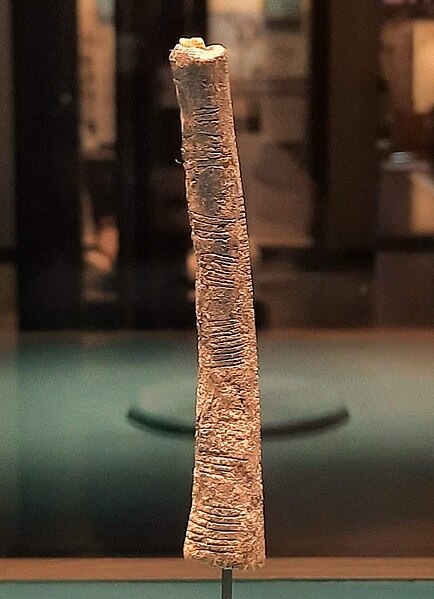In mathematical logic, the Peano axioms, also known as the Dedekind–Peano axioms or the Peano postulates, are axioms for the natural numbers presented by the 19th-century Italian mathematician Giuseppe Peano. These axioms have been used nearly unchanged in a number of metamathematical investigations, including research into fundamental questions of whether number theory is consistent and complete.
The chain of light dominoes, starting with the nearest, can represent N, however, axioms 1–8 are also satisfied by the set of all light and dark dominoes. The 9th axiom (induction) limits N to the chain of light pieces ("no junk") as only light dominoes will fall when the nearest is toppled.
In mathematics, the natural numbers are the numbers 0, 1, 2, 3, etc., possibly excluding 0.[under discussion] Some define the natural numbers as the non-negative integers 0, 1, 2, 3, ..., while others define them as the positive integers 1, 2, 3, .... Some authors acknowledge both definitions whenever convenient. Some texts define the whole numbers as the natural numbers together with zero, excluding zero from the natural numbers, while in other writings, the whole numbers refer to all of the integers. The counting numbers refer to the natural numbers in common language, particularly in primary school education, and are similarly ambiguous although typically exclude zero.
The Ishango bone (on exhibition at the Royal Belgian Institute of Natural Sciences) is believed to have been used 20,000 years ago for natural number arithmetic.


